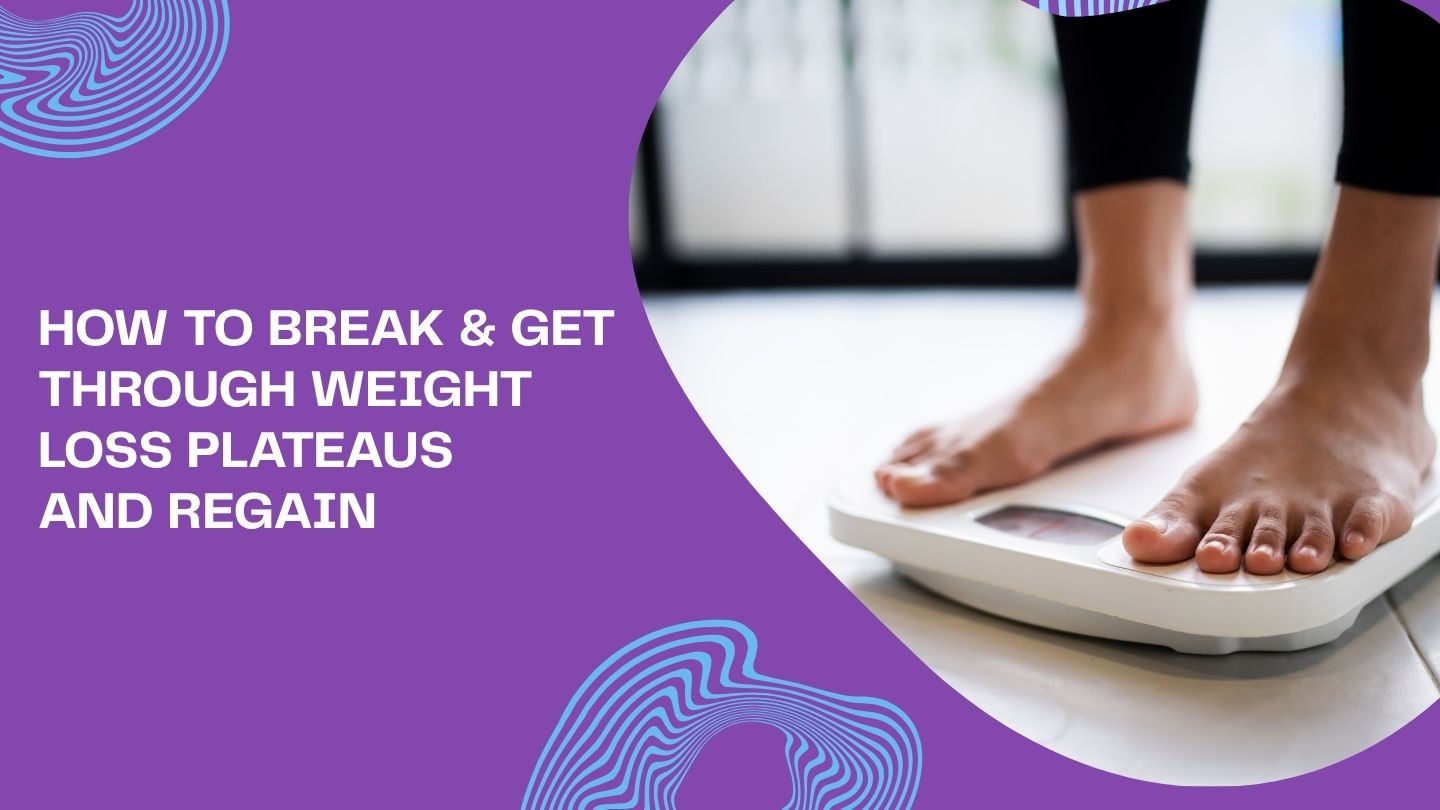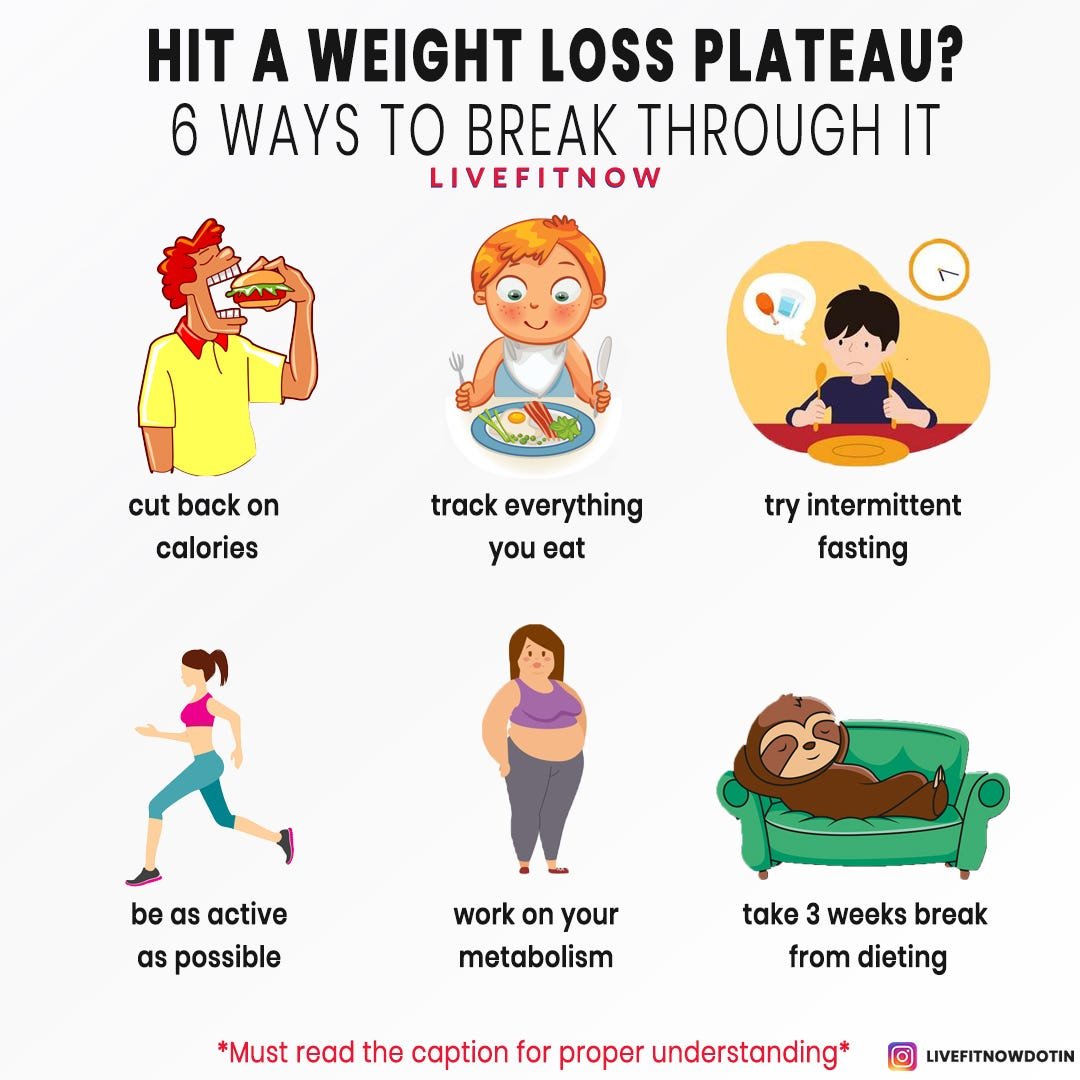Have you been working hard to lose weight, only to suddenly see the numbers on the scale stop moving? It’s frustrating, confusing, and can make you feel like giving up.
But here’s the truth: hitting a weight loss plateau is completely normal. Your body has its own way of adjusting, and understanding why this happens is the key to breaking through and reaching your goals. You’ll discover the real reasons behind weight loss plateaus and simple steps you can take to keep your progress moving forward.
Keep reading—you’re closer to the breakthrough you’ve been waiting for.

Causes Of Weight Loss Plateau
Weight loss plateaus happen when your progress stops even though you keep trying. This can be frustrating and confusing.
Several reasons cause weight loss to slow down or stop. Understanding these reasons can help you continue your journey.
Metabolic Adaptation
Your metabolism can slow down as you lose weight. This means your body burns fewer calories than before.
The body tries to save energy by lowering its calorie needs. This makes weight loss harder over time.
Calorie Intake Miscalculations
People often eat more calories than they think. Small snacks and portion sizes add up quickly.
Tracking food carefully helps avoid these mistakes. Eating the right amount is key to losing weight.
Reduced Physical Activity
When you lose weight, your body needs less energy. You may move less without realizing it.
This drop in activity lowers the calories you burn each day. Staying active helps prevent a plateau.
Hormonal Changes
Hormones control hunger, mood, and how your body uses energy. Changes can slow weight loss.
Stress, sleep, and age affect hormones like leptin and cortisol. These shifts can cause a plateau.
Muscle Gain Vs Fat Loss
Building muscle can hide fat loss on the scale. Muscle weighs more than fat but looks leaner.
Track body measurements or how clothes fit instead of only using weight to see progress.
Effects Of A Plateau On Motivation
Weight loss plateaus happen when your body stops losing weight. This can make you feel stuck and unsure about your progress.
The pause in results often lowers your motivation to keep going. Understanding this can help you stay focused.
Psychological Impact
A plateau can cause feelings of frustration and self-doubt. You may wonder if your efforts are worth it.
This mental strain can affect your confidence and make it hard to stay positive.
Common Frustrations
Many people feel annoyed when the scale won’t move. They may think they are doing something wrong.
- Feeling stuck despite healthy eating
- Worrying about losing progress made
- Confusion about what to change
- Getting tired of tracking food and exercise
Avoiding Discouragement
It helps to focus on small wins and other health benefits. This keeps motivation alive during plateaus.
- Celebrate non-scale victories like more energy
- Adjust your routine to add variety
- Set new goals beyond weight loss
- Remember that plateaus are normal
Strategies To Overcome Plateaus
Weight loss plateaus happen when your body stops losing weight. This can be frustrating after steady progress.
Using different strategies can help you break through these plateaus and continue your weight loss journey.
Adjusting Calorie Intake
Your calorie needs change as you lose weight. Eating the same amount may stop your progress.
Lower your calorie intake slightly to keep losing weight. Avoid cutting calories too much to stay healthy.
- Track your daily calorie intake
- Reduce calories by 100-200 per day
- Focus on nutrient-rich, low-calorie foods
Increasing Workout Intensity
Your body adapts to exercise over time. Adding more intensity can help burn more calories.
Try harder workouts by increasing speed, weight, or duration to push past the plateau.
- Add intervals or sprints to cardio sessions
- Increase weights in strength exercises
- Extend workout time by 10-15 minutes
Incorporating Strength Training
Strength training builds muscle, which burns more calories even at rest. This can boost weight loss.
Include weight lifting or bodyweight exercises in your routine two to three times a week.
- Use free weights or machines
- Try push-ups, squats, and lunges
- Focus on all major muscle groups
Prioritizing Sleep And Recovery
Good sleep helps your body recover and keeps hormones balanced. Poor sleep can slow weight loss.
Aim for 7-9 hours of sleep each night to support your weight loss goals and energy levels.
- Keep a regular sleep schedule
- Create a relaxing bedtime routine
- Avoid screens before bed
Managing Stress Levels
Stress releases hormones that can make it harder to lose weight. Managing stress helps your progress.
Use relaxation techniques to lower stress and support your body’s ability to lose weight.
- Practice deep breathing or meditation
- Exercise regularly to reduce stress
- Spend time with friends and family

Tracking Progress Accurately
Weight loss can slow down or stop even if you follow your plan. This is called a plateau. Tracking progress well helps understand if you really hit a plateau or if changes are happening.
Using the right tools and methods to track progress gives a clearer view. It helps you adjust your plan and stay motivated during tough times.
Using Different Metrics
Relying only on the scale can be misleading. Body weight changes slowly and can fluctuate daily due to water or food intake.
Track other measurements to see real progress. These include body fat percentage, waist size, and how your clothes fit.
- Body measurements show fat loss even if weight stays the same
- Body fat scales give more detail than weight alone
- Photos help visually track changes over time
Importance Of Consistency
Tracking progress needs to happen at the same time and under the same conditions. This reduces errors and shows true changes.
For example, weigh yourself in the morning after using the bathroom. Avoid weighing after meals or workouts for best results.
- Use the same scale and wear similar clothes
- Measure body parts on the same day each week
- Keep a log to compare data easily
Recognizing Non-scale Victories
Sometimes the scale does not show all your hard work. Non-scale victories are important signs of progress.
These include better energy, improved strength, and fitting into smaller clothes. They keep you motivated when weight loss slows down.
- Feeling stronger during workouts
- Clothes fitting more comfortably
- More energy and better mood
- Improved sleep quality
Long-term Weight Loss Maintenance
Weight loss plateaus happen when your body adjusts to changes. It can feel like your progress stops. Understanding how to maintain weight loss helps you keep results long-term.
Keeping weight off means making habits that last. Small, steady changes work better than quick fixes. This guide covers key parts of lasting weight control.
Sustainable Lifestyle Changes
Long-term weight control needs habits you can keep. Crash diets or extreme plans often fail. Choose changes that fit your daily life.
Simple habits like drinking water, eating more vegetables, and moving daily help. These add up to real results over time.
- Eat balanced meals with whole foods
- Stay physically active regularly
- Get enough sleep each night
- Manage stress in healthy ways
Balancing Diet And Exercise
Weight loss needs both eating right and moving more. Too much focus on one can slow progress. Balance helps avoid plateaus.
Exercise builds muscle, which burns more calories. Eating the right foods fuels workouts and recovery. Together they support weight loss and health.
- Include strength training and cardio
- Choose nutrient-rich foods over empty calories
- Adjust portions based on activity level
- Track progress and tweak habits
Setting Realistic Goals
Setting clear and doable goals keeps you motivated. Unrealistic goals cause frustration and may lead to giving up. Small steps lead to big success.
Focus on habits instead of just numbers. Celebrate improvements in energy, strength, and health. These signs show your effort is working.
- Set weekly or monthly targets
- Track non-scale victories
- Adjust goals as you progress
- Be patient with your body
Frequently Asked Questions
What Causes Weight Loss To Plateau?
Weight loss plateaus occur when your body adapts to a new weight. Metabolism slows down, and calorie burn reduces. As you lose weight, your body requires fewer calories. This can result in a balance between calories consumed and burned, halting weight loss.
Revamping your routine can help overcome this.
How Long Do Weight Loss Plateaus Last?
Weight loss plateaus can last from a few weeks to several months. The duration depends on various factors like metabolism, diet, and exercise. Staying consistent with a healthy lifestyle and making small changes can help break the plateau. Patience and persistence are key to overcoming it.
Can Stress Cause Weight Loss Plateaus?
Yes, stress can contribute to weight loss plateaus. Stress increases cortisol levels, which can lead to weight gain or stalled progress. High cortisol can trigger cravings for unhealthy foods. Managing stress through relaxation techniques and ensuring proper sleep can help resume weight loss.
Does Exercise Impact Weight Loss Plateaus?
Exercise plays a crucial role in overcoming weight loss plateaus. Regular activity boosts metabolism and burns calories. Changing your workout routine can challenge your body in new ways. Incorporating strength training can build muscle, which increases resting metabolic rate and aids in breaking plateaus.
Conclusion
Weight loss plateaus happen to many people. The body adjusts to changes and slows down progress. Small habits may need a fresh look. Changing exercise or food choices can help. Patience is key while staying consistent. Keep tracking your efforts and listen to your body.
Progress may slow, but it does not stop. Every step forward counts on your journey. Stay positive and keep moving toward your goal.



